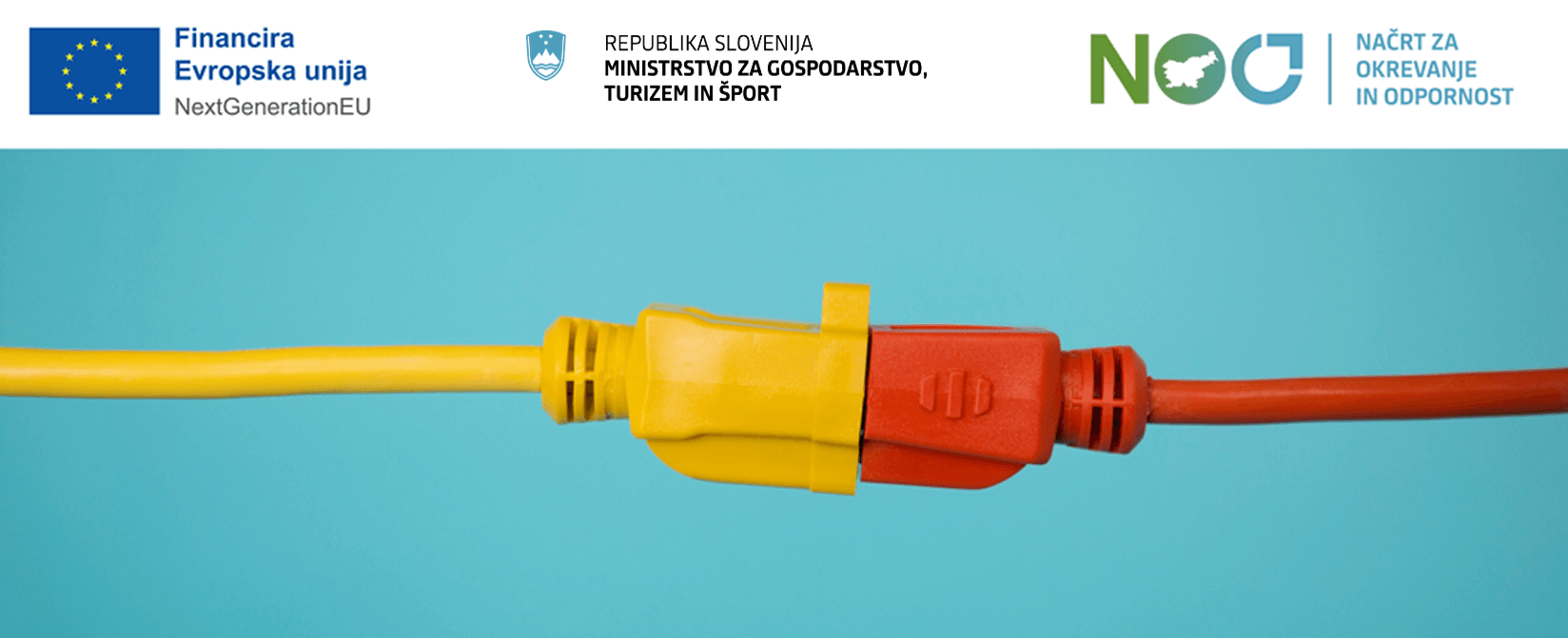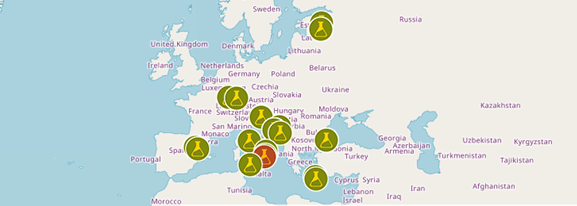EU co-funded projects
Project Bela
Digital transformation of the Elektro Ljubljana ecosystem to support the energy transition and improve the user experience
The purpose of the project is to digitally transform the ecosystem of Elektro Ljubljana to support the energy transition and to improve the user experience. Through the development of intelligent solutions and the integration of advanced technologies, we will transform the business functions of development and maintenance of the electricity distribution network, thereby improving reliability, flexibility and accelerating the adoption of renewable energy sources. The establishment of digital tools and their integration with the services we offer to clients will, on the one hand, enable more effective communication and, on the other hand, provide clients with the ability to be more actively involved in the EE ecosystem. The project activities cover eight work packages (PDP-1 to PDP-8) and include the development of the company’s digital strategy, the development, testing and implementation of digital tools above the state of the art, as well as training and education for the improvement of digital competences of employees.

Total value of the project
2.870.557,00 EUR;
Amount of co-financing
1.468.986,82 EUR
Project duration
april 2022 – march 2024
The operation was selected for co-financing at the Public Tender “Digital transformation of the economy” (JR Digit NOO).
The investment is co-financed by the European Union from the Recovery and Resilience Fund – NextGenerationEU. The investment is part of the Recovery and Resilience Plan measures.
Consortium partners:
- Elektro Ljubljana d.d.
- TROIA d.o.o.
- INFORMATIKA d.o.o.
- COMLAND d.o.o.
Horizon 2020: CyberSEAS project
Together with 25 partners in CyberSEAS (Cyber Securing Energy dAta Services) project Informatika is looking for solutions to improve the resilience of energy supply chains, protecting them from disruptions that exploit the enhanced interactions and extended involvement models of stakeholders and consumers in complex attack scenarios, characterised by the presence of legacy systems and the increasing connectivity of data feeds.
The project has 3 strategic objectives:
countering the cyber risks related to highest impact attacks against EPES
protecting consumers against personal data breaches and attacks
increasing the security of the Energy Common Data Space
All three objectives are equally important, since cyber-criminals are shifting tactics to favour multi-stage attacks in which stealing sensitive data is a precondition for the real attack, and enables them to maximise damage and profits (while traditionally infrastructure cyber-attacks used to be direct attacks to the machinery and typically targeted control systems, not data). Threat actors, especially large ones such as nation states, also carry out complex attacks that leverage supply chain dependencies, and this trend continues to grow, as highlighted in the July 2020 analysis by the Atlantic Council. Likewise, with the transition to scenarios where users are proactively involved, prosumer data is becoming more and more sensitive.
To achieve these objectives, CyberSEAS delivers an open and extendable ecosystem of 30 customisable security solutions providing effective support for key activities, and in particular: risk assessment; interaction with end devices; secure development and deployment; real-time security monitoring; skills improvement and awareness; certification, governance and cooperation.
CyberSEAS solutions are validated through experimental campaigns consisting of 100+ attack scenarios, tested in 3 labs before moving out to one of 6 piloting infrastructures across 6 European countries.

Project coordinator is Italian company Engineering, Slovenian companies cooperating, in addition to Informatika, are Institut za korporativne varnostne študije (ICS), ELES, Petrol and Akademska in raziskovalna mreža Slovenije. Project will start in October.